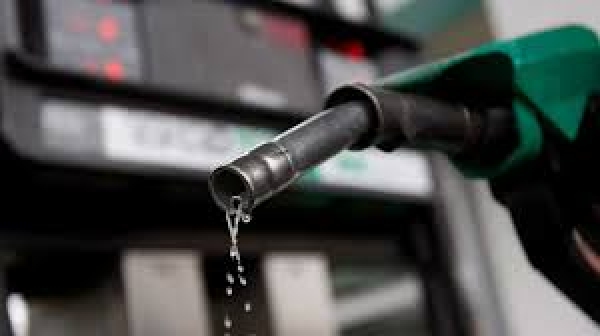The latest data from the National Bureau of Statistics (NBS) indicate that the average national petrol price has risen by 176.02 per cent year over year (YoY), from N701.24 per litre in April 2024 to N254.06 per litre in the same month of 2023.
On a month-to-month, or MoM, comparison, there was a 0.64 per cent increase from N696.79 per litre in March 2024.
Naija News reports that in the last few months, the price of foodstuffs and other commodities has skyrocketed due to the high cost of fuel across the country.
This development has further worsened the country’s economic challenges, as some businesses find it difficult to cope with the price changes, though recently, the price of petrol dropped.
However, there are indications that the price of Premium Motor Spirit (PMS), commonly known as petrol, has increased significantly year-on-year. In May 2024, the landing cost of PMS rose by 46.8% to N1,026.71 per litre, compared to N545.83 per litre in the same period of 2023.
It is important to note that the landing cost does not include additional expenses such as depot-related charges, transportation logistics, and marketers’ margins.
When these costs are taken into account, the total cost of delivering petrol to filling stations is estimated to be nearly N1,052.39 per litre, assuming an exchange rate of N1,510 to a dollar (resulting in a differential of N458.71 per litre).
These findings contradict the federal government’s claim that petrol subsidies have been eliminated under the Bola Tinubu administration.
Sources within the oil marketing industry have informed Energy Vanguard that the landing cost for June is expected to increase further due to worsening factors that contributed to the rise in May.
Furthermore, foreign exchange scarcity and a deteriorating exchange rate have been highlighted as major concerns. Additionally, the cost of fuel imports has risen in response to recent increases in international crude oil prices.
According to Vanguard, a transactional analysis conducted recently by a major operator revealed that marketers are currently paying a total direct cost of N1,052.39 per litre.
The breakdown reveals that the product cost per litre is N1,026.71, with additional costs such as freight (Lome-Lagos) at N10.37, port charges at N7.37, Nigerian Midstream and Downstream Petroleum Regulatory Authority (NMDPRA) levy of N4.47, storage cost at N2.58, Marine insurance cost at N0.47, fendering cost at N0.36, and miscellaneous expenses at N0.06, along with a finance cost totalling N28.04.
The detailed analysis indicates that the landing cost of 28,000 metric tons of imported petrol exceeds $25 million, encompassing the total product cost, total direct cost, and total finance cost.
This could potentially yield sales revenue of over N39 billion, highlighting a loss of more than N19 billion.
In light of these findings, marketers have expressed concerns about the lack of profitability in importing at the current pump price, especially with the absence of a guaranteed free float of pump prices by the government.
Consequently, the Nigerian National Petroleum Company Limited (NNPCL) remains the sole importer of the product.
The situation is further exacerbated as Nigerians grapple with the rising cost of living due to increased transportation expenses, leading to higher prices of goods and services nationwide.
Nigeria Still Paying Fuel Subsidy
In a recent chat with journalists, the Managing Director/CEO of Pinnacle Oil, Robert Dickerman, mentioned that Nigeria is currently spending approximately N1 trillion each month on petrol subsidies.
He highlighted the significant subsidy that is still in place, which results in the product being sold at a lower price and leads to smuggling activities to neighbouring countries.
He added: “The consequences of this subsidy are: the cost of gasoline in Nigeria is the lowest in Africa by far, which encourages smuggling out, further depriving Nigeria of value. Smuggling causes Nigeria to subsidize neighbouring countries even while our economy struggles. The cost is hurting the entire budget, federal and state, as critical programs cannot be funded to pay this subsidy. It is currently calculated to be about 1 trillion Naira/month.”
In the meantime, the Nigerian government has quietly reinstated the payment of subsidies on petrol, also known as premium motor spirit (PMS), as reported by the International Monetary Fund (IMF).
The IMF recently released its Post Financing Assessment report on Nigeria, highlighting its concerns over the government’s decision to set price limits for fuel at retail stations.
To ensure efficient governance, the global financial institution advised President Tinubu’s administration to cease all subsidies on petrol, emphasizing that this practice disproportionately benefits the wealthy at the expense of the less privileged.

